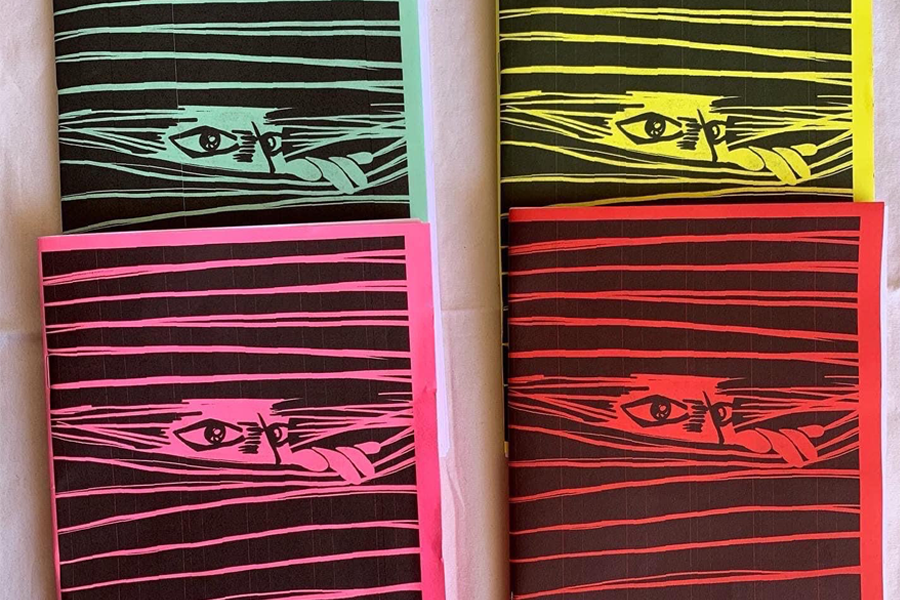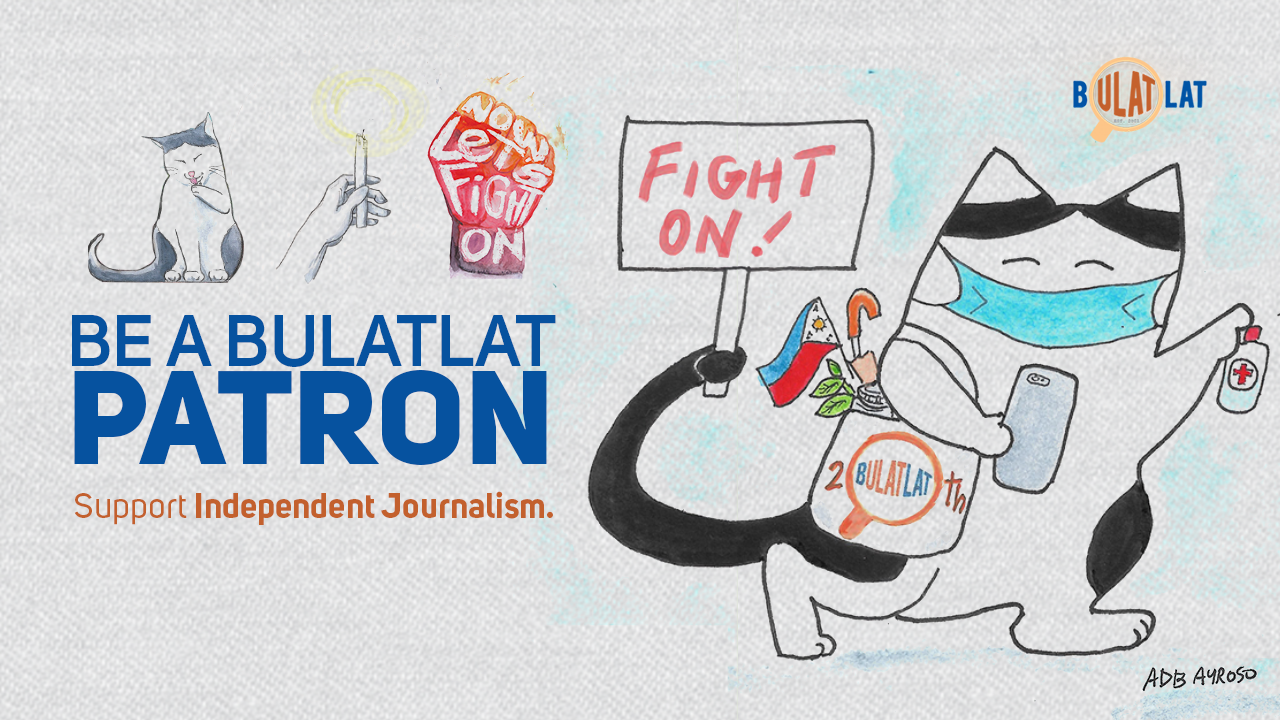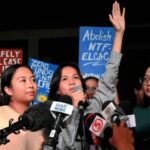
“This zine offers lessons and hopes. It fortifies the morale of activists targeted in their region, gives inspiration to the hopeless, and reflects the unformidable love for their colleagues— disappeared and were victimized by the state.”
By VENMAR CECILLE
Bulatlat.com
MANILA – Writers, activists, and human rights defenders from Northern Luzon launched their zine titled “Affidavit ng Dahas” to narrate their collective experiences and trauma from the state-backed human rights violations in their region.
“This zine offers lessons and hopes. It fortifies the morale of activists targeted in their region, gives inspiration to the hopeless, and reflects the unformidable love for their colleagues— disappeared and were victimized by the state,” their opening statement read, written by Bayan Secretary General Mong Palatino.
The human rights violations he specified in the statement are the trumped-up charges against the activists, torture, state surveillance, fake surrenderees, and enforced disappearances.
“More than anything else, Affidavit ng Dahas is a testimony that despite the severe repression in Northern Luzon, the people are moving forward and continuously shaping new history,” Palatino said.
Overcoming trauma
For Niño Oconer, co-editor and contributor, the process of making the Affidavit is not easy, especially for the activists who also wrote about the harassment they experienced at the hands of the state actors.
“At some point, we have to confront our feelings and we see writing and zine-making as a way to process it,” said Oconer.
Oconer narrated that days before the first year anniversary of the inauguration of President Ferdinand Bongbong Marcos Jr., non-uniformed personnel were harassing, tailing, and red-tagging them in Northern Luzon for a week.
Oconer was also among the “Northern Luzon 7” who were victims of trumped-up charges of rebellion, accusing them of involvement in an ambush by New People’s Army guerillas, killing two government soldiers in Malibcong, Abra in October last year.
Fortunately, Regional Trial Court Branch 2 in Abra cleared Northern Luzon 7 from a rebellion charge on May 11 due to the insufficiency of grounds and evidence against them.
This serves as an inspiration for them to humanize activists, development workers, and human rights defenders; a form of resistance against the continuous red-tagging of the state forces.
“There are two things that I have to overcome when we were creating the zine. First, I have to review all the personal accounts of the contributors. Second, I also have to confront the responsibility to release the real situation in our region, that these activists and defenders are humans too,” said Oconer.
One of the contributors, Angel Galimba, also shared that although it is hard to recall their experiences, the zine has helped them in exposing the impunity they suffer and coming into solidarity with people from other sectors, particularly farmers, workers, and the youth, among others.
“We write our stories not to show fear but rather, move forward in defending the rights of the people,” said Galimba.
Publishing resistance
Czykah Tumaliuan , co-editor and also a contributor, shared that despite all the hardships, she saw zine-making as a form of resistance and solidarity work.
“There is a history in zine-making. It is a political platform to express the voices that people in power always try to suppress… Even Rizal makes zine before, short self-published pamphlets. We ground ourselves even in the progressive history of the mosquito press,” said Tumaliuan.
Zine-making or self-publishing is an active and creative force against oppressive dominations, according to Mako in a recent virtual program with Arete Ateneo.

Its roots in Philippine history can be traced from the Revolutionary Press against Spanish colonialism (e.g. Noli me Tangere, El Filibusterismo, La Solidaridad); Guerilla Press against the Japanese and American occupation during the World War (e.g. The Liberator, Matanglawin); Mosquito Press against the Marcos Regime (e.g. WEForum, Inquirer, Kule).
Timaliuan also highlighted that even with the advent of digital convergence, grassroots communities remain dependent on print media to acquire messages and information.
“Zine allows us to respond with urgency. Since it is also homemade and the materials are accessible, it allows us to reclaim the means of production. It does not follow any hierarchy, it is free from censorship, ” said Tumaliuan.
As a curator, writer, and founder of Kwago, an independent and non-profit research and publishing laboratory, Timaliuan underscored that she had initial plans for the distribution of the Affidavit.
“I have connected with community libraries and schools. We have even partnered with institutions to distribute this zine, as part of our program and workshop on zine-making,” Timaliuan said.
The real situation in the North
For the editors, the stories are not only to share the experiences of the contributors but also to broaden the perspective of the readers about the consecutive attacks in the North. Among the cases they mentioned is the disappearance of indigenous rights activists and community organizers Dexter Capuyan and Gene Roz Jamil “Bazoo” De Jesus, who have been missing for almost three months now.
Since April 28, 2023, Capuyan and De Jesus are reportedly missing in a suspected enforced disappearance by state security forces. They were last seen in Taytay, Rizal, being forced into two separate vehicles by men who introduced themselves as CIDG agents.
Read: Surface Dexter and Bazoo
Aside from the disappearance of their colleagues, the Anti-Terrorism Council (ATC) has arbitrarily designated the leaders of Cordillera Peoples Alliance as “terrorists”, namely Windel Bolinget, Jennifer Awingan, Sarah Abellon-Alikes, and Steve Tauli. This, despite the recent dismissal of their rebellion charges due to the insufficiency of grounds and evidence.
The CPA is an alliance of indigenous peoples’ organizations and sectoral formations in the Cordillera that promotes the rights, welfare of the marginalized sectors.
“CPA had been subject to countless red-tagging through inclusion in military and police presentations in the early 2000s up to the present, and had even sustained extrajudicial killings of its members from 2004 to 2007. As of present, state forces mark a bright red target to CPA’s activities, leaders—and through the recent ATC resolution, freezing even personal and organizational funds,” CPA said in a statement.
The CPA asserted that the designation is “unjust, without factual basis, and done with clear malicious intent to push individuals into silence and dismantle people’s organizations.”
“These cases reflect that state violence has not stopped from the Duterte administration to the Marcos administration. The attacks have intensified,” said Oconer.
Oconer also shared that they planned to make the Affidavit an ongoing campaign, a live document for the communities to contribute and replicate.
“We want the people to write and release their own affidavits, expose how they are being victimized by state terrorism in their everyday lives. This will serve as an inspiration, not only for the activists but for the masses, in realizing the need to fight and push forward,” Oconer ended.
The proceeds from the sale of Affidavit will be donated to the human rights organizations in the Ilocos region, to be used as legal fees to file counter-charges against the state forces who continue to malign the activists and community organizers. (RVO) ![]()




